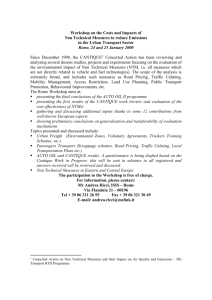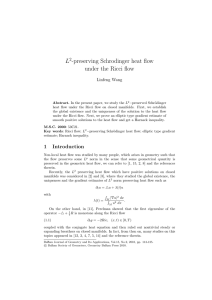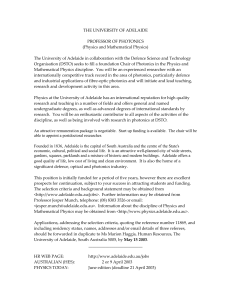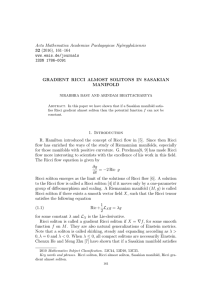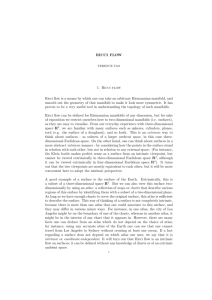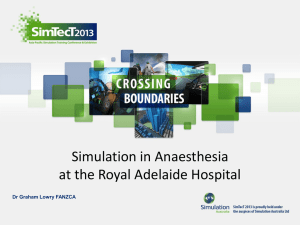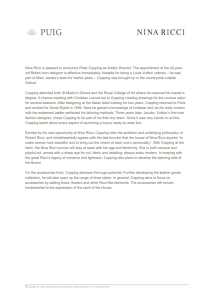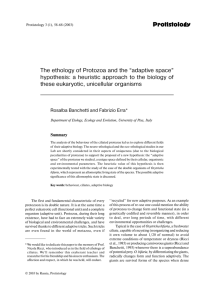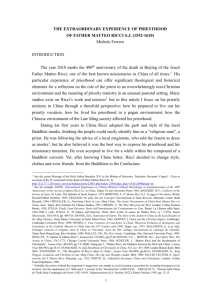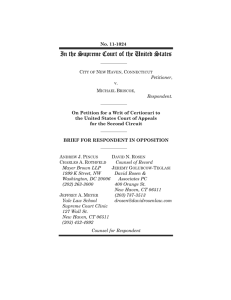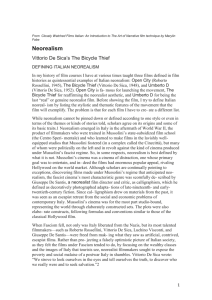RICCI John Peter
advertisement
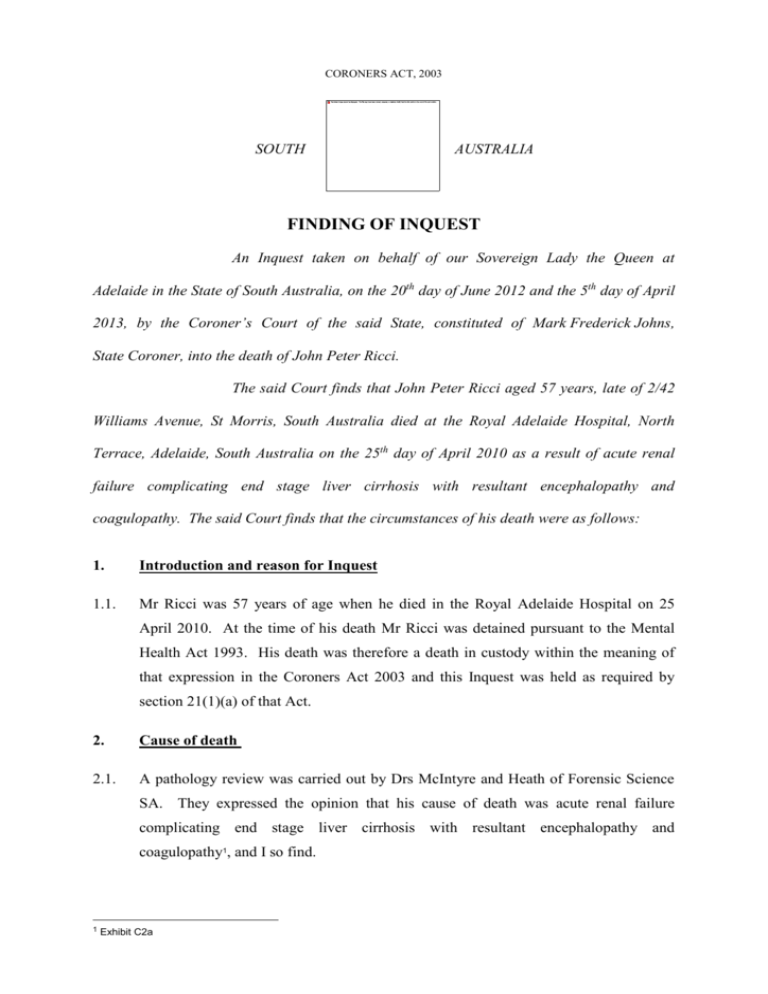
CORONERS ACT, 2003 SOUTH AUSTRALIA FINDING OF INQUEST An Inquest taken on behalf of our Sovereign Lady the Queen at Adelaide in the State of South Australia, on the 20th day of June 2012 and the 5th day of April 2013, by the Coroner’s Court of the said State, constituted of Mark Frederick Johns, State Coroner, into the death of John Peter Ricci. The said Court finds that John Peter Ricci aged 57 years, late of 2/42 Williams Avenue, St Morris, South Australia died at the Royal Adelaide Hospital, North Terrace, Adelaide, South Australia on the 25th day of April 2010 as a result of acute renal failure complicating end stage liver cirrhosis with resultant encephalopathy and coagulopathy. The said Court finds that the circumstances of his death were as follows: 1. Introduction and reason for Inquest 1.1. Mr Ricci was 57 years of age when he died in the Royal Adelaide Hospital on 25 April 2010. At the time of his death Mr Ricci was detained pursuant to the Mental Health Act 1993. His death was therefore a death in custody within the meaning of that expression in the Coroners Act 2003 and this Inquest was held as required by section 21(1)(a) of that Act. 2. Cause of death 2.1. A pathology review was carried out by Drs McIntyre and Heath of Forensic Science SA. They expressed the opinion that his cause of death was acute renal failure complicating end stage liver cirrhosis with resultant encephalopathy and coagulopathy1, and I so find. 1 Exhibit C2a 2 3. Background 3.1. Mr Ricci was an alcoholic with a history of Type 2 Diabetes, anxiety disorder, gastrooesophageal reflux disease, liver failure and ascites. Between November 2009 and his death he had voluntarily discharged himself or absconded from hospitals on 11 occasions while being treated for his end stage liver failure due to his alcohol abuse. He was becoming increasingly confused as a result of hepatic encephalopathy. 4. The events leading to Mr Ricci’s detention 4.1. At about 3:55pm on Sunday 18 April 2010 Mr Ricci voluntarily presented at the Wakefield Hospital Emergency Clinic in Hutt Street, Adelaide. He was wearing a Royal Adelaide Hospital gown with two stoma bags attached over a drainage point. He was assessed as having end-stage liver failure, huge ascites and cellulitis of the scrotal and penile area. His behaviour was bizarre and appeared to be encephalopathic. No doubt because he had obviously been in the Royal Adelaide Hospital, he was transferred by the staff at Wakefield by ambulance back to the Royal Adelaide Hospital. There he was examined by Dr Parvar who assessed him as suffering from cirrhosis, ascites and scrotal and penile cellulitis. It was also noted that he had a likely cognitive impairment with low IQ or possible personality disorder. In the early hours of the following morning, Dr Parvar was called again to see Mr Ricci following a code black that had been called due to Mr Ricci’s aggression. Security guards had also been called and had to intervene. Mr Ricci was assessed and Dr Parvar decided to detain him under the Mental Health Act. The grounds for detention were poor judgment and that he wanted to leave despite requiring medical treatment for significant medical co-morbidities and alcohol withdrawal. At about 10am that day he was reviewed for the purposes of the Mental Health Act by psychiatrist Dr Paul Davis. Dr Davis confirmed the order and completed the necessary documentation noting that Mr Ricci had a history of alcohol abuse and had absconded or discharged himself several times in the past few weeks and that he required medical treatment. On the afternoon of Thursday 22 April 2010 Dr Kent, another psychiatrist at the Royal Adelaide Hospital, conducted a further review of Mr Ricci. He continued Mr Ricci’s detention and assessed him as having ongoing delirium associated with hepatic encephalopathy and possible alcohol withdrawal. He noted that Mr Ricci’s judgment was impaired. 3 5. Mr Ricci’s treatment and subsequent death at the Royal Adelaide Hospital 5.1. During his detention at the Royal Adelaide Hospital Mr Ricci was treated for his medical conditions in the Gastroenterology Ward, Ward Q6. He was a difficult patient to treat because of his unwillingness to cooperate with staff. He was suffering from significant alcoholic liver disease with late stage cirrhosis and large ascites. In an effort to relieve his encephalopathic symptoms doctors prescribed lactulose to assist with the removal of toxins from his system. He was consistently non-compliant with medication and as a result his symptoms continued. At one stage a nasal gastric tube was inserted and remained in situ for approximately 24 hours delivering lactulose to Mr Ricci. In this time the encephalopathy improved slightly but Mr Ricci wanted the tube removed and following this his condition deteriorated again. He was given oxycodone to try and curb the agitation. 5.2. Mr Ricci was also suffering from acute renal failure and by 23 April 2010 was considered to have a very poor prognosis. At 7:45pm on 25 April 2010 he was noted by staff to have a very low temperature of some 33ºC. A hot blanket was provided. At about 11:35pm that evening he was observed sitting up in bed and fidgeting with his hands. He was checked again at 11:55pm and noted to be lying on his back and staff observed that he was no longer breathing. Furthermore, he had no pulse. 6. Conclusions 6.1. In my opinion Mr Ricci was lawfully detained and for appropriate reasons relating to his necessary medical treatment. His medical treatment was appropriate within the limitations imposed by his advanced alcoholic liver disease and consequent lack of cooperation with medical intervention. 7. Recommendations 7.1. I have no recommendations to make in this matter. Key Words: Death in Custody; Natural Causes In witness whereof the said Coroner has hereunto set and subscribed his hand and Seal the 5th day of April, 2013. State Coroner Inquest Number 10/2012 (0575/2010)
